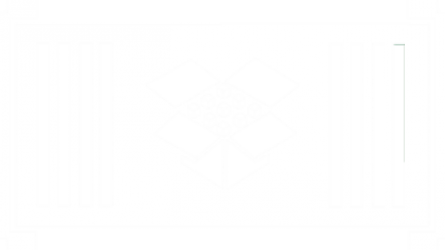Almost everyone who has seen the Matrix movie remembers that scene. Neo, played by Keanu Reeves, has just spent the day learning martial arts, by some brain writing sci-fi process. His mentor comes in at the end of one of these “lessons”, Neo opens his eyes and says “I know Kung-Fu”.
Learning is difficult
Of course, learning is not that easy in real life, it takes a certain amount of time, long hours of work and practice. And it probably never ends. Take my current favorite subject, the cloud. To be precise I should say public cloud services on Azure. The scope of what those services cover is extremely wide, and some of them are so specific, they need a specialist to deep dive into.
I can be overwhelming. If you work in this field, or a similar one, you may already have had that feeling when you feel you will never get to the bottom of things, when you have the impression that you can never master the domain, because it keeps evolving. To be honest, it is probably true. There are probably thousands of people working to broaden and deepen cloud services every day, and there is, probably, only one of you (or me).
For the last 15 months, I have been trying to learn as much as possible about Azure services, in any field possible, from IaaS networking to Machine Learning, from Service Bus Relay to Logic Apps. And after all that time and numerous talks, webcasts, seminars and data camps, I almost always ended up thinking “OK, I think I understand how these services work. I probably could do a demo similar to what I have just watched. But how can I use these in real-life scenario?”
And last week, thanks to a very dedicated person, I finally found some insight.
Meet the expert
Allow me to set the stage. We were invited to an Azure Data Camp by Microsoft. The aim of these 3 days was to teach us as much as possible on Azure Data Services (Cortana Intelligence Suite). The team was amazing, knowledgeable and open, the organization perfect, the attendees very curious and full of questions and scenarios that we could relate to. Overall these 3 days were amazing. However, the technical scope was so wide and deep, that we covered some very complex components in under an hour, which, even with the help of night-time labs, was too fast to process and absorb. It left me with the usual feeling. I probably would be able to talk a bit about these components or areas, but my knowledge felt far for operational, and even business presales level. And I am supposed to be an architect, to have all this knowledge and be able to create and design Azure solutions to solve business needs.
So, after two days, that was the stage. Then came in one of the trainers/specialists. I will tell you a bit more about him later on, just do not call him a data scientist. His area of expertise, as far as we are concerned, covers the whole Cortana Suite with an angle that I would qualify as Data Analysis. He had already taken the stage earlier, to explain us what the methodology to handle data was, and how every step related to Cortana Suite services. He even had this speech on multiple occasions. Every time we heard and read it, it made sense, it was useful and relevant.
So, Chris started his part by showing us the same diagram, and asking us “Are you comfortable with that?” Followed by a deep, uneasy silence. My own feelings were that I did understand the process, but did not feel able to apply it or even explain it. I see several reasons for that. The first is that data analysis is far from my comfort zone. I am an IT infrastructure guy, I know virtualization, SAN, networking. I have touched Azure PaaS services around these topics, and extended to some IoT matters. The second was that we did not have time to let the acquired knowledge settle and be absorbed that week. Admittedly, I could have spent more hours in the evening rehearsing what we learned during the day, but we were in London, and I couldn’t miss that. And the last is that I feel we are getting so used to having talks and presentations about subjects we just float on the surface of, that we are numb and we do not dive to deeply into those, probably out of fear. Fear of realizing that we are out of our depths. Impostor’s syndrome, anyone?
Enter the “I know kung-Fu!” moment
Because that was how we felt: having been force-fed a lot of knowledge, but having never really thought about it, or even used it. We felt knowledgeable, until someone asked us to prove it.
Remember what happened next in the Matrix? Neo’s mentor, Morpheus, asks him “Show me”. And kicks his ass, more or less. But still manages to get him to learn something more.
Chris did that to us. He realized that we were actually feeling lost, under the varnish of knowledge. He then spent 45 minutes explaining the approach, and finally got us a simplified scenario, which felt familiar for those us who had studied for previous design certification exams. And asked us which services we would use in that case, what were the key words etc.
And magically made us realize that we could indeed use our newfound knowledge to design data analytics solutions based on Cortana Intelligence Suite.
It might seem obvious that examples and scenarios are an excellent way to teach. Don’t get me wrong, we had tons of those during these days. We actually spent a fair amount of time with Chris and part of the team and attendees that evening discussing that. The trick was to deliver the scenario at exactly the right moment: when we felt lost, but had the tools to understand and analyze it.
My point, to make that long story short, is: it’s OK to feel drowned by the extent of available cloud services and options. We all do. Depending on your job, you may be the go to person for Cloud topics, or an architect trying to be familiar with almost everything in order to know when to use a particular tool, or merely trying to wrap your mind around the cloud. In any case, you just have to find the time to get some hand-son, or read/watch a business case that matches something you are familiar with. This way you can see how the shiny new thing you’ve learnt is put to use.
And you will be able to say “I know Kung-Fu”.
Useful links :
Chris Testa O’neill ‘s blog : https://ctestaoneill.wordpress.com
Originally published here : https://gooroo.io/GoorooTHINK/Article/17175/I-know-KungFu/26728#.WMMDqzE2se0

